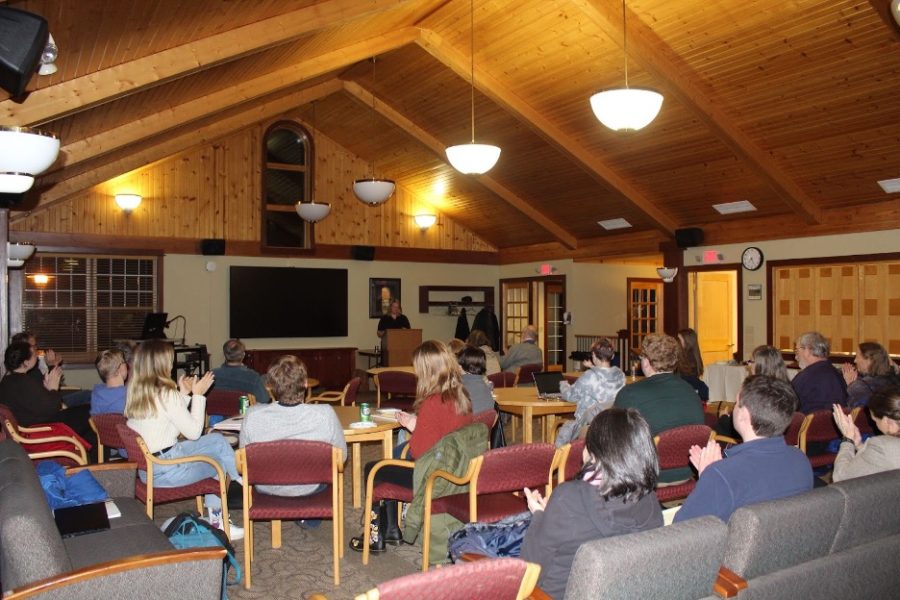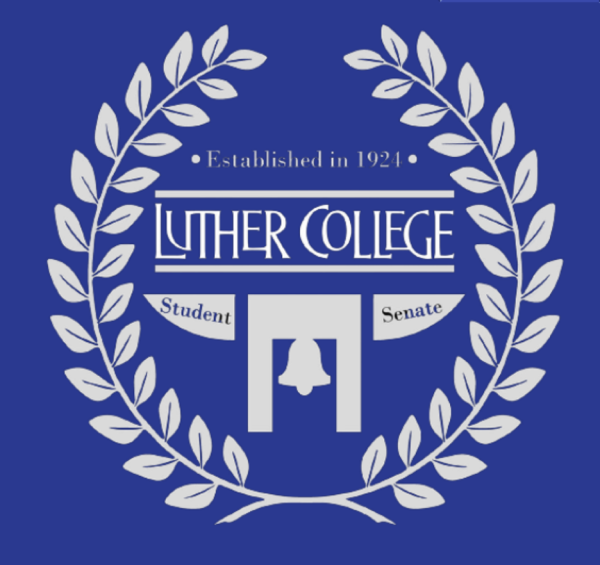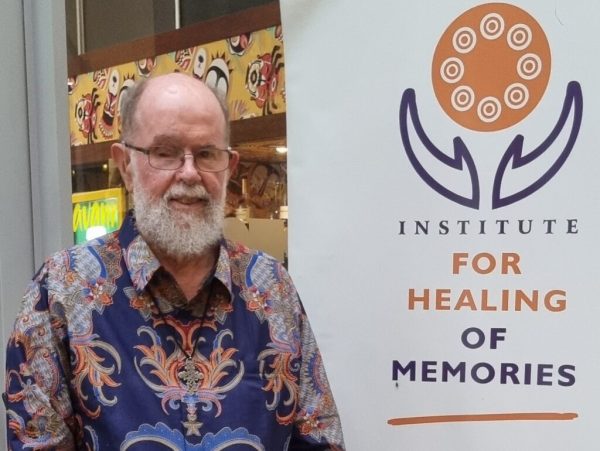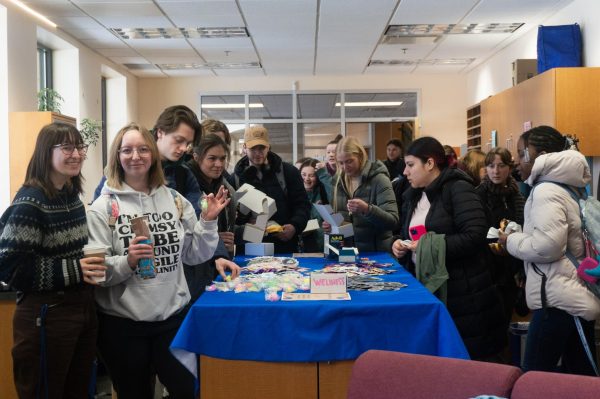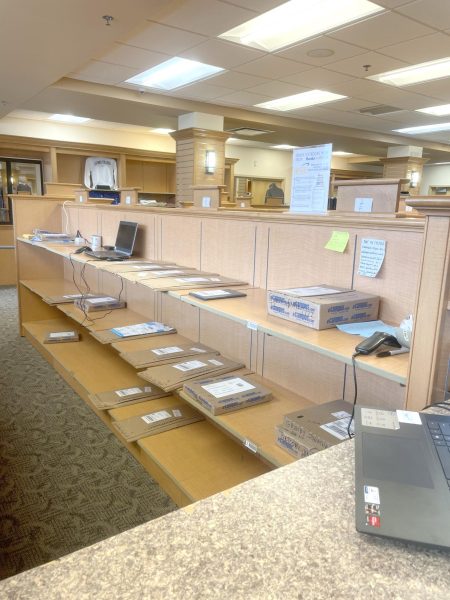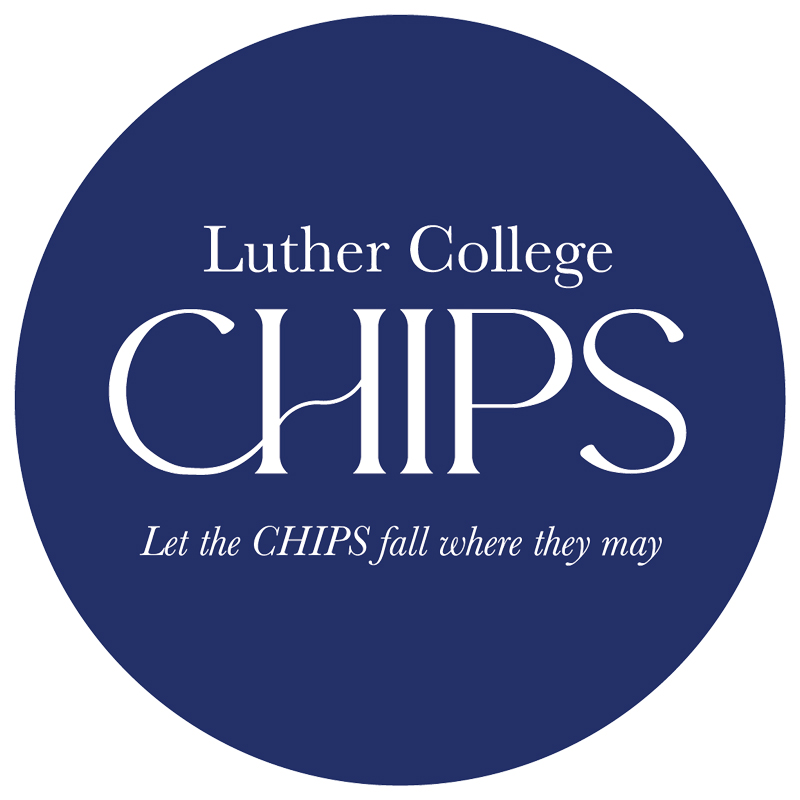Dr. Anna Peterson Presents “Luther College’s and the Bethany Indian Mission, 1844-1955”
On Tuesday, November 15, Luther students and faculty members gathered to learn about Associate Professor of History Anna Peterson’s research. Her presentation was titled: “Luther College and the Bethany Indian Mission, 1884-1955.” The one-hour lecture took place in Shirley Baker Commons and focused on Luther’s relationship with the Bethany Indian Mission, a boarding school.
Peterson introduced the affiliation between Luther College and the Bethany Indian Mission through the founders, teachers, and Luther alums who helped run the Mission. She also discussed the experiences of seven Native American students who attended Luther with help from the Bethany Indian Mission in the 1940s and 1950s.
The Bethany Indian Mission was operated in Wittenberg, Wisconsin from 1844-1955. As one of the most well-known Indian boarding schools in the Midwest, the Mission hosted hundreds of Native American students. The main goal of the school was to force conversion to Lutheranism, with mandatory baptisms and church attendance.
Peterson began the presentation by highlighting the importance of exploring Luther’s ties to the Mission. She went on to state what she wished to achieve by providing an account of the history and the experiences of the Native American students.
“In all this, I hope to lay bare the ways in which Luther founders, faculty, students, and alumni participated in the construction of systems designed to assimilate and convert Native youths to Christianity, Lutheranism and white culture,” Peterson said. “[Members of the Luther community] participated in the colonial project of dispossessing Native peoples and offering them Christianity as well as a circular education designed to foster white control over them further.”
Peterson continued to emphasize that Luther played a significant role in the history of the Bethany Indian Mission school. Her research found that both Luther College and Bethany Indian Mission were founded and supported by similar people focused on building the Norwegian Synod, and continuing its mission at home and abroad. Peterson’s talk also highlighted that Luther trained many pastors and teachers who served in instrumental positions at Bethany Indian Mission.
Professor of History Robert Christman believed the presentation was very relevant and important to be discussed because of the implications on the Luther community.
“Professor Peterson’s research presented our past as a community and the complexities associated with that past while highlighting an important issue,” Christman said. “The presentation can pave the way for conversations about our past, both the things we are proud of and the ones we are not so proud of.”
Following the presentation was a question and answer period with the audience. Many asked questions about the Bethany Indian Mission anthropology collection Luther owns, as well as the opportunities Luther currently has specifically for Native American students.
Nick Rogness (‘24) attended the presentation and said that the research like Peterson’s is another way to acknowledge Luther’s role in assimilating Native Americans into Christian-American culture.
“As a Nordic studies major and student of the Luther community, I think it is important to acknowledge that the college sits on land taken from Native Americans,” Rogness said. “However, only acknowledging that without acknowledging our role in schools such as Bethany is irresponsible.”
Also in attendance was Salomé Valdivieso Santillán (‘23), who was shocked to learn of Luther’s connection to the Bethany Indian Mission. As a senior, Santillán has lived on Luther’s campus for four years, but was not previously aware of the college’s connection to the Mission.
“Students need to know about such parts of the college history because it is relevant to our community building,” Santillán said. “Ignoring these events contributes to the systems oppressing Native Americans within our community and worldwide.”
Peterson ended the event by stating that even though Luther had a strong relationship with the Bethany Indian Mission, most people know little to nothing about its existence and how much that highlights the need for such events.
“Students need to attend such presentations and talk about Luther’s history because our past informs our present,” Peterson said. “I hope people walk away from the presentation feeling informed and learning about a part of Luther’s history they never knew existed.”

